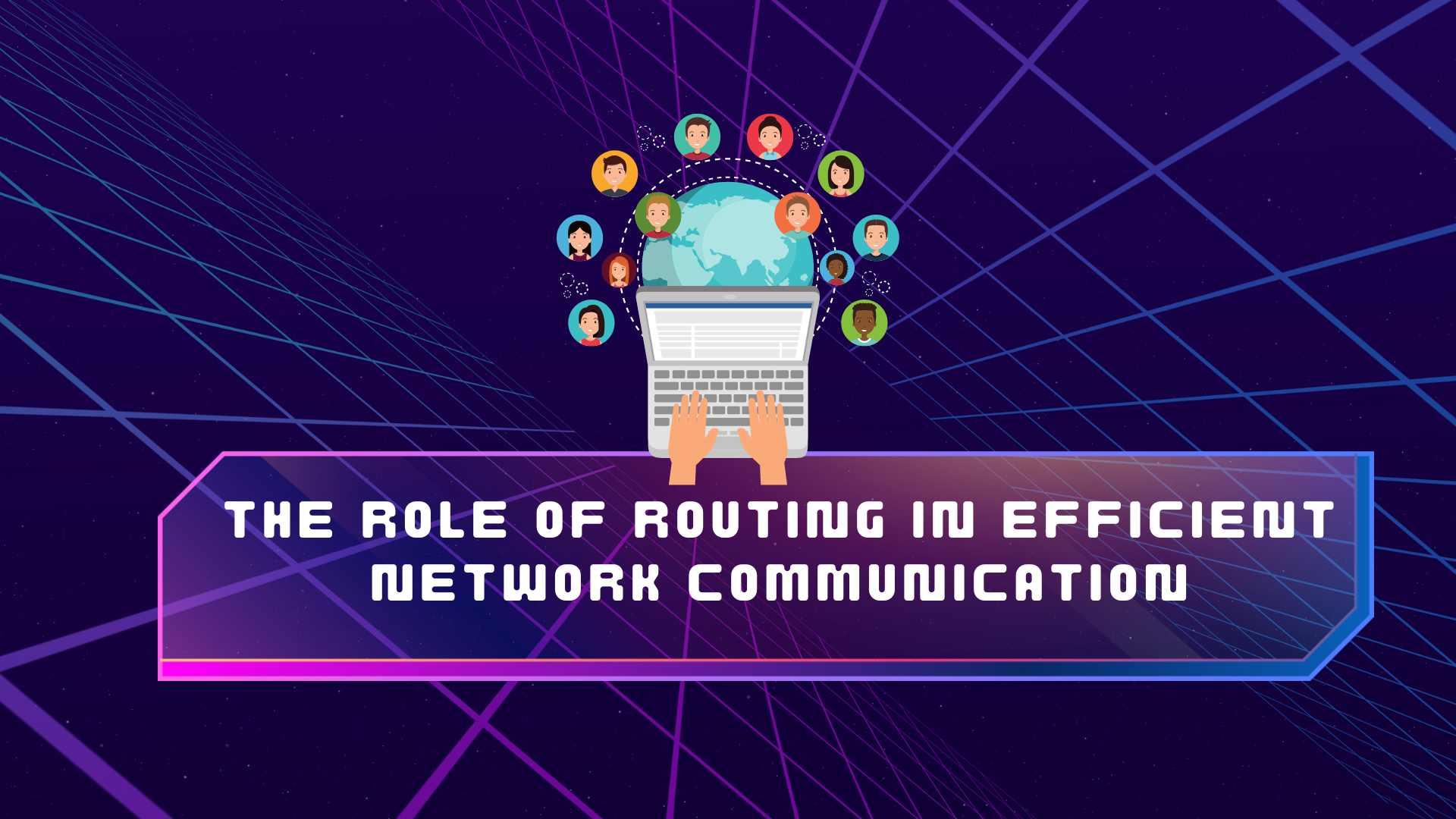How is Big Data Being Used Today
Companies like Google use big data and machine learning to make it easier for their search engine to understand exactly what it is a customer is searching for, in context. Marketers and brands take the same approach to site search to incorporate a better user experience for customers.
Walmart is one example of this.
Walmart uses text analysis, machine learning and synonym mining via Polaris to improve the accuracy of their site search. According to Walmart, adding semantic search to their website has increased the conversion rate by 10–15%.

Big data is also a major driving force in advertising. Facebook is often hailed for its spectacular audience targeting within its ad platform. Thanks to the volume of consumer information within Facebook data center marketers can layer targeting based on a variety of factors such as:
· Important life events
· Interests
· Likes and dislikes
· Personal behaviors
· Purchase history
· Political and religious affiliation
· Age, work, income and more
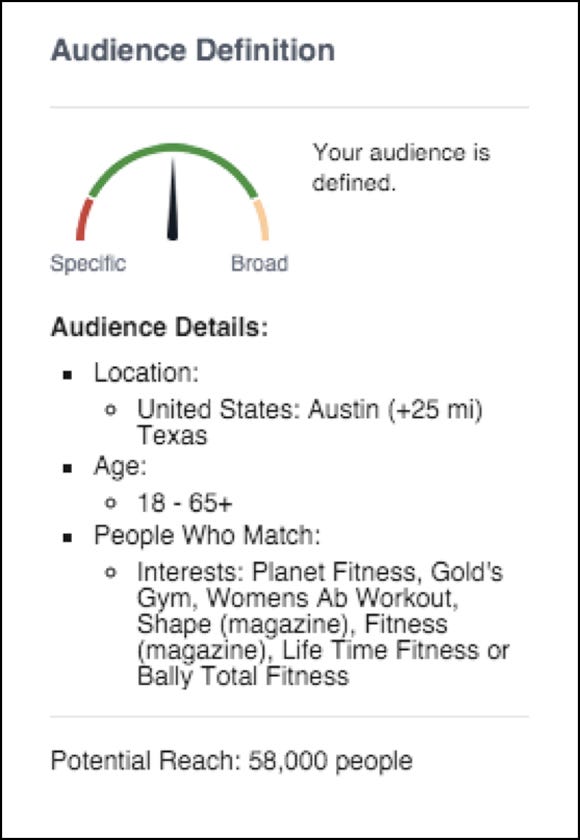
Companies tend use data like this to enrich themselves, improve connections to specific audience segments and promote their brand, products, and services.
While companies like Facebook and Google track data for “good” purposes, and I feel they keep and use government more securely than some government sectors and agencies, it may be time to consider better regulation of the practice of data sharing and how big data is used.
Facebook’s Data Breach with Cambridge Analytica
The primary cause for concern as with the volume of data harvesting. Cambridge Analytics acquired roughly 50 million Facebook user profiles from a researcher in 2014. The data was gathered by the researcher who collected information from some 270,000 survey respondents. Unfortunately, information was also gathered from those “friends” networked to the survey takers.
The data was then passed on to Cambridge Analytics, a move that violated Facebook’s TOS.
The next cause for concern is over how that data was used.
Allegedly, Cambridge Analytica used that consumer data to create voter-targeting strategies for Donald Trump’s presidential campaign. The result were ads created specifically for voter segments based on that data — data that was obtained without consent.
A number of data breaches have occurred in the last decade. In fact, CSO Online recently reported on 17 of the biggest breaches of the 21st century, including how much those breaches cost.
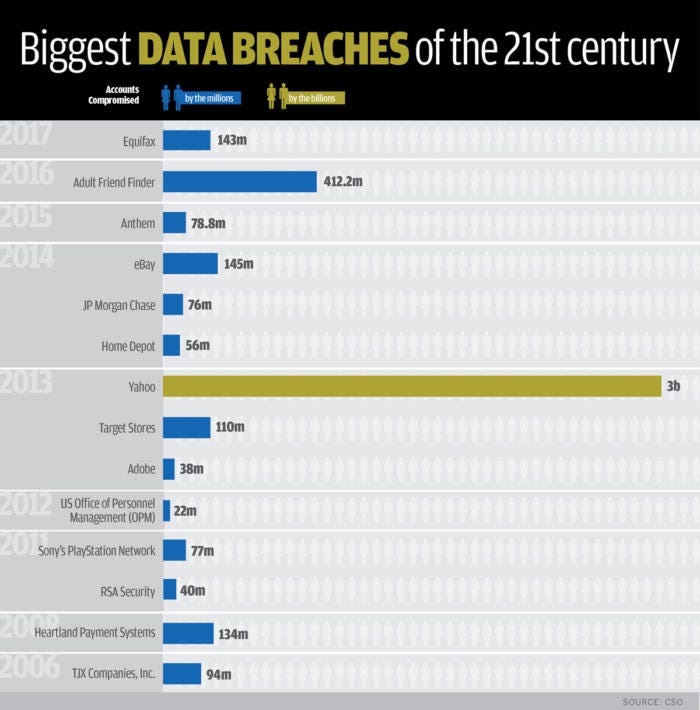
The key difference here is that the most recent breach with Facebook and Cambridge Analytics wasn’t a hack, and that draws into question the nature of big data, privacy, and how big data can be used. This is the kind of incident that will undoubtedly change the nature of privacy, content, and transparency between brands and consumers.
“The regulatory aftershocks could rattle companies beyond Facebook,” writesTodd Spangler for Variety. “In the big M&A deals in play in the media sector — AT&T’s bid for Time Warner, Comcast’s pending acquisition of Sky, Disney’s proposed takeover of 20th Century Fox — streaming media is front and center. And everyone wants to use big data to serve up highly targeted ads over the internet, just as Facebook does.”
But in the wake of the Cambridge Analytics/Facebook breach there is a new call for regulations that control the use of personal data — and it’s coming from more than just consumers. The media and Silicon Valley are weighing on the big data and privacy concerns.
“Privacy to us is a human right,” said Apple CEO Tim Cook. He want to state that Apple could “make a ton of money” if the company decided to monetize the data from its customers. “This is not something that we just started last week when we saw something happening,” Tim went on to say during an interview with MSNBC. “We’ve been doing this for years.” Cook believes we’re beyond the point of companies self-regulating when it comes to privacy.
NBCUniversal chief Steve Burke was outspoken about privacy and data concerns as well, insisting regulatory standards should be applied to companies and data centers like Facebook similar to the ones used to regulate the television industry.
“Facebook is a gigantic business, and gigantic businesses have big responsibilities to the world,” Burke said during NBCU’s Innovation Day in New York. “I think the problem is exacerbated by the fact that Facebook’s business model is based on capturing data that many, many times, people don’t know they’re giving. And then selling that data, very often electronically to a buyer who Facebook doesn’t even know is a buyer.”
The average consumer is concerned as well.
The power of data is something that can be difficult to understand without knowing the full scope of what companies like Facebook have access to. With how Cambridge Analytica used the data people are starting to realize that Facebook, and similar companies, may know more about you than they would if they had your phone lines tapped.
A March 2018 survey from Raymond James & Associates polled Facebook users on their concern and anxiety over how their personal information was being handled.
· 44% were very concerned
· 40% were somewhat concerned
· 16% were not concerned
But did this growth in concern and revelation of how big data is being used change the behavior of users?
The same survey asked Facebook users if the data abuse of Cambridge Analytica would impact their use of the social network.
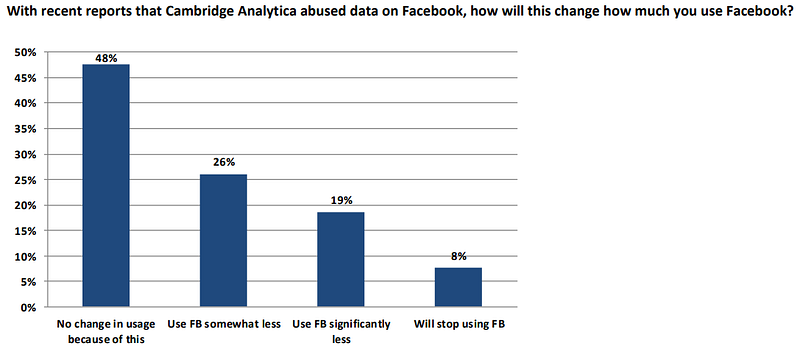
Only 7.7% stated they would stop using Facebook. 44.8% said they would use it either somewhat or significantly less. The other 47.6% stated there would be no change in how they used Facebook.
Even if there isn’t a mass exodus of users from social platforms, significant change is on the horizon.
Next Steps — Global Legislation on Privacy and Transparency Isn’t Far Off
While the U.S. hasn’t taken any official step toward legislation yet regarding data, The European Union is putting new regulation into effect in May known as the General Data Protection Regulation.
The new standards require companies like Facebook and similar tech organizations to obtain clear, direct consent before data can be collected from consumers. This kind legislation is intended to give consumers more control, so they can not only learn what companies know about them as individuals, but also so they can request any data (images or otherwise) be completely deleted.
The EU set a stiff fine for noncompliance which is equal to 4% of the company’s global revenue. Based on Facebook’s 2017 financial report that’s a fine to the tune of $1.6 billion.
The United States is likely to draft similar legislation to this though perhaps not as strict. Before federal regulation can take place we’re more likely to see it happen at the state level. The California Consumer Privacy Act is one example, being voted on in November, that calls for more transparency and giving customers the ability to opt out of personal data being collected and sold.
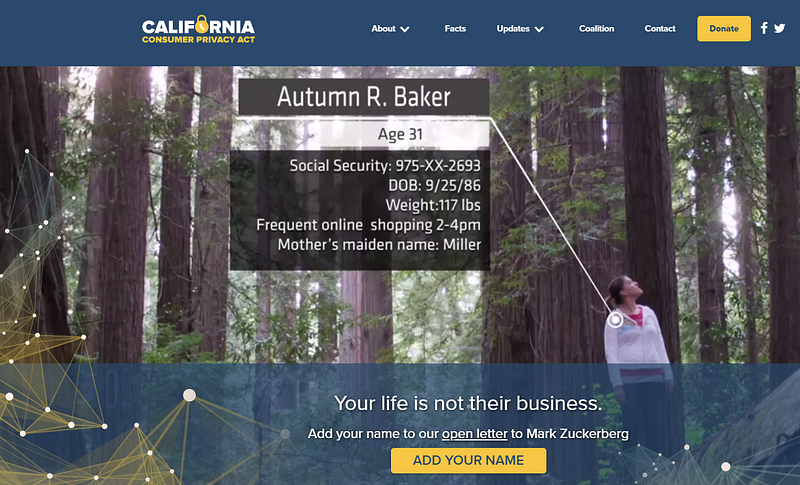
What’s Being Done Now — Facebook Makes an Overhaul
While influencers like Tim Cook say that we’re beyond the point of self-regulation among brands, it’s still an important step in response to breaches of this nature.
In the wake of the Cambridge Analytica debacle, Facebook found itself the target of multiple lawsuits. One from a user in Maryland filing a class action lawsuit that claims Facebook has “absolute disregard” for the personal data of its users despite its own privacy agreements stating the service would never disclose personal information without permission or notice.
Two additional class action lawsuits were filed by shareholders, Fan Yuan and Robert Casey, who are seeking damages as a result of the social network’s stock taking a significant hit where Facebook lost approximately 10% of its market value in the wake of the alleged mishandling of data.
In March, CEO Mark Zuckerberg apologized for the incidents surrounding the scandal during a recent CNN interview.
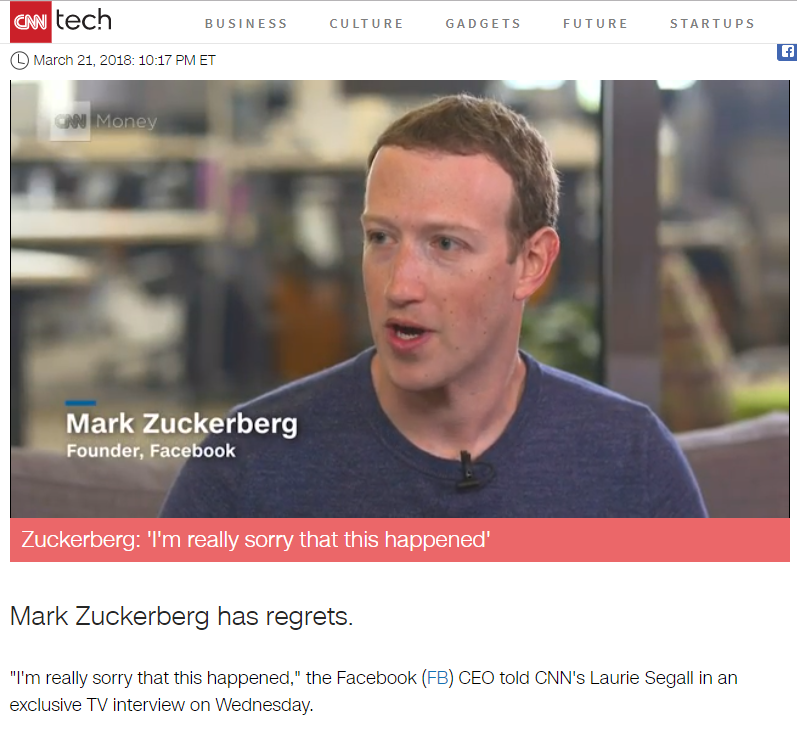
While the policies that allowed the data breach to take place at Facebook had already been addressed and changed, there were still more steps that could (and should) be taken to protect the privacy and personal information of users.
In a recent blog post, Facebook announced how it would be overhauling the privacy controls not only to make them more streamlined and easier to manage for users, but also “to put people in more control” of their personal information.
In the blog post Erin Egan, VP and Chief Privacy Officer, Policy and Ashlie Beringer, VP and Deputy General Counsel, stated that the company was going beyond Zuckerberg’s initial response regarding cracking down on abuse, stronger policies, and simplifying the process of revoking apps’ ability to use personal data.
“we’re taking additional steps in the coming weeks to put people more in control of their privacy,” writes the executive staff in a news release for Facebook. “Most of these updates have been in the works for some time, but the events of the past several days underscore their importance.”
The privacy overhaul includes a number of updates:
· Privacy controls that are easier to find and use, condenscing those privacy controls from more than 20 different screens down to a single page so it’s clear what info is and is not being shared with apps.
· Updates to make accounts more secure, letting users add more layers of protection to their account, like two-factor authentication. If you turn this on and someone tries to log into your account from an unrecognized device then you will have to confirm whether it was you.
· Improving control over personal information now allows you to review what you’ve shared and delete it if you no longer want it shared. This includes posts you’ve previously shared or reacted to, friend requests sent to other users, and even things you’ve previously searched for within the social network.
· Improved controls over the ads you see so users can better manage the information used by Facebook to determine the ads you’re shown. Your ad preferences now include segments that explain how ads work on Facebook and the options you can take.
· Facebook wants you to know you own what you share on Facebook, so it’s improving user’s ability to manage things like who sees your posts and the information you choose to include on your personal profile.
· Device transparency is being added so users have more specific information about the information Facebook collects when contacts are synced from some of its products, including call and SMS history.
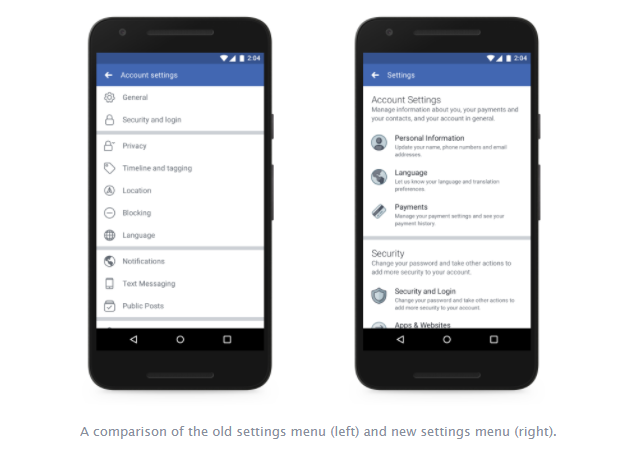
An April 4th update from Facebook revealed additional updates that further restrict how other companies, services, and apps access data on Facebook:
· Events API that now restricts access to guest list and event posts, and only approved apps may use Events API
· Access to Groups API will now be restricted only to third-party apps that are approved by both the group admin and Facebook.
· All future access to the Pages API from third party apps will need to be approved by Facebook
· Extensive restrictions on available data related to Facebook Login integration
· Removal of account search by the use of phone number and email
One concern that regularly circulates is whether or not data is actually deleted from Facebook if you delete or deactivate your account. When the question “when you permanently delete your Facebook account, what happens to your information?” was posted on Quora, a former Facebook consultant responded (and his answer upvoted/endorsed by a Facebook software engineer.
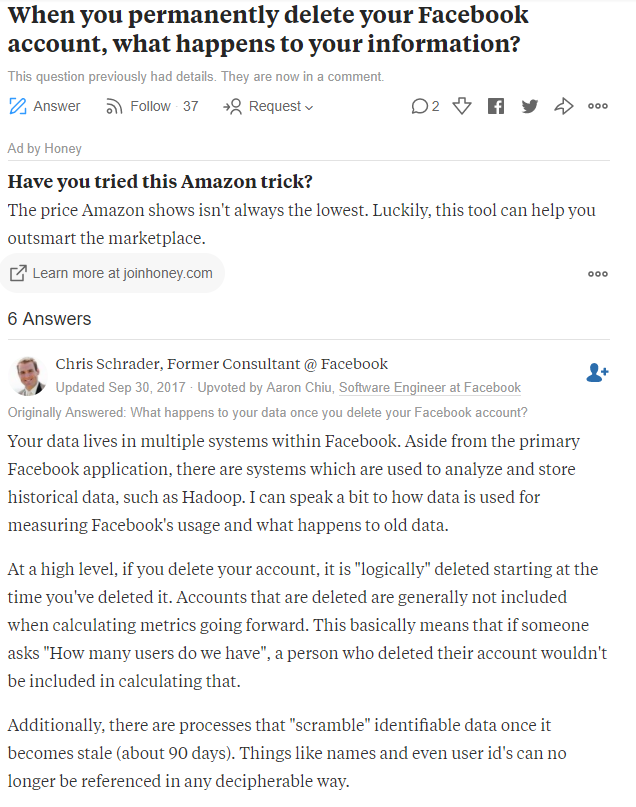
The response essentially states that not all information is deleted, but that information remaining is no longer personally identifiable as it’s “scrambled.”
Part of the privacy overhaul seems to address this as well. Facebook is introducing “Access Your Information”, a secure way for users to access and manage information including posts, reactions, comments and more. From that interface you can delete anything from your timeline and profile that you no longer want on Facebook.
In the closing statement of its news release, the Facebook’s executives added “we’ll be proposing updates to Facebook’s terms of service that include our commitments to people. We’ll also update our data policy to better spell out what data we collect and how we use it. These updates are about transparency — not about gaining new rights to collect, use, or share data.”


